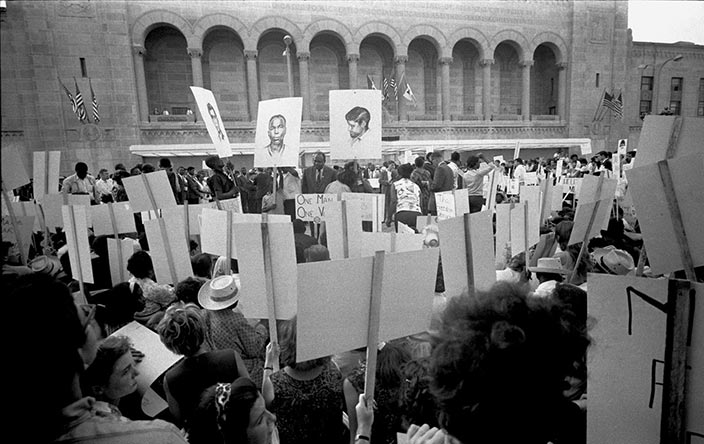1964 Democratic Convention
Marc J Sonnenfeld
Board Member, American INSIGHT
We are approaching the 60th anniversary of the 1964 Democratic National Convention which took place at Boardwalk Hall in Atlantic City, New Jersey from August 24 to 27, 1964. President Lyndon Johnson was nominated for a full term and Senator Hubert Humphrey was nominated for vice president. The convention took place less than a year after President John F. Kennedy was assassinated, and his legacy was present throughout the convention.
The main controversy at the convention was whether to seat the delegates of the integrated Mississippi Freedom Democratic Party (MFDP). The MFDP argued that the official Mississippi delegation had been elected in violation of the party’s rules because people of color had been systematically excluded from voting in the primaries and participating in the precinct and county caucuses and the state convention.
The convention began only 20 days after the August 4, 1964 discovery of the remains of three civil rights workers – James Chaney, Andrew Goodman and Michael Schwerner – who had been murdered two months earlier in rural Philadelphia, Mississippi. Each night during the convention, the MFDP delegates and their supporters sat silently in a circle on the Boardwalk outside the Convention Hall. In the center of the circle were three charcoal posters depicting Chaney, Goodman and Schwerner. I sat with them.
The Democratic Party referred the dispute to the convention credentials committee, chaired by New Jersey Governor Robert Meyner. After televised hearings and protracted deliberations the credentials committee recommended a “compromise” – two of the 68 MFDP delegates would be made “at-large” delegates and the remainder would be non-voting “guests” of the convention; the regular Mississippi delegation would be required to pledge to support the party ticket and no future Democratic convention would accept a delegation chosen by a discriminatory poll.
The MFDP refused to accept the proposal because it would validate a process in which people of color had been denied their constitutional right to vote and participate in the political process. Many white delegates refused to sign the pledge and left the convention. Who would think that only 60 years ago whether to accept the convention credentials of an all-white state delegation from which people of color had been systemically excluded would have been a debatable proposition now so quickly forgotten?

